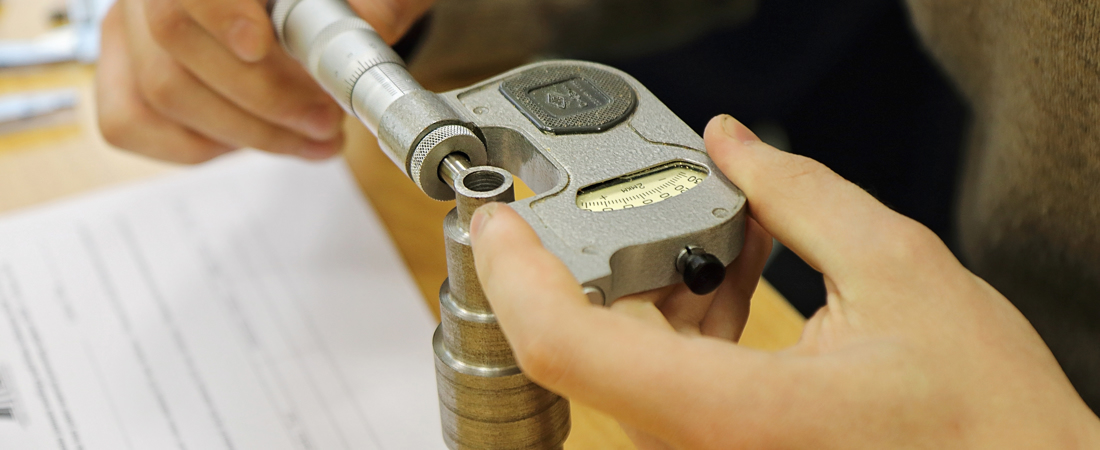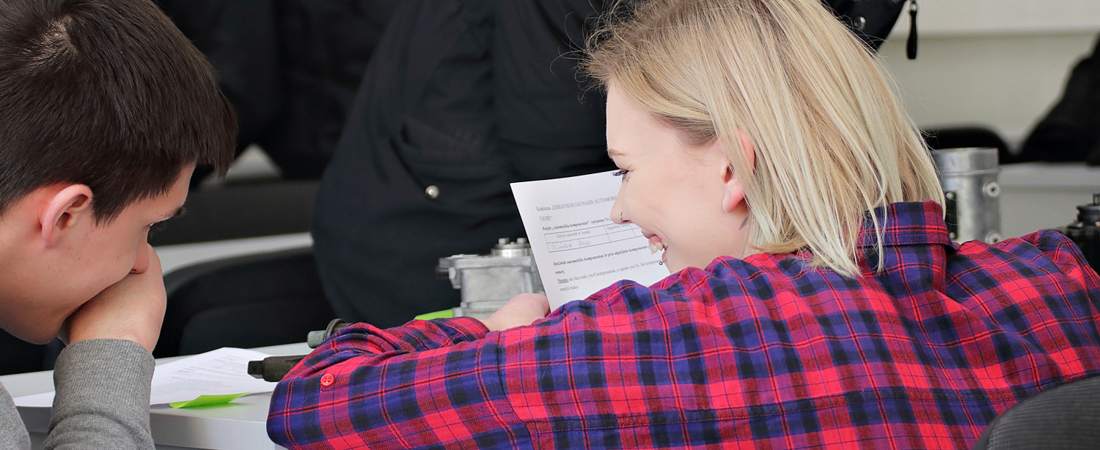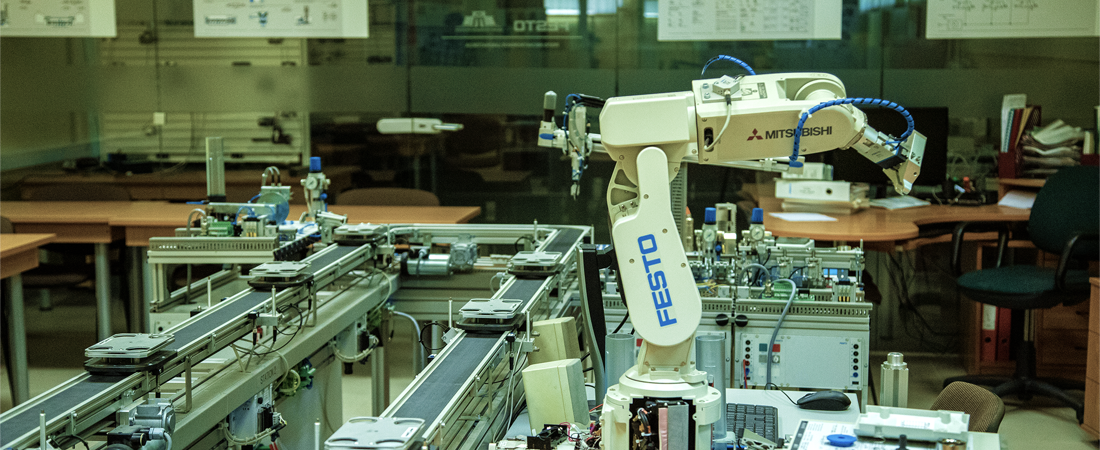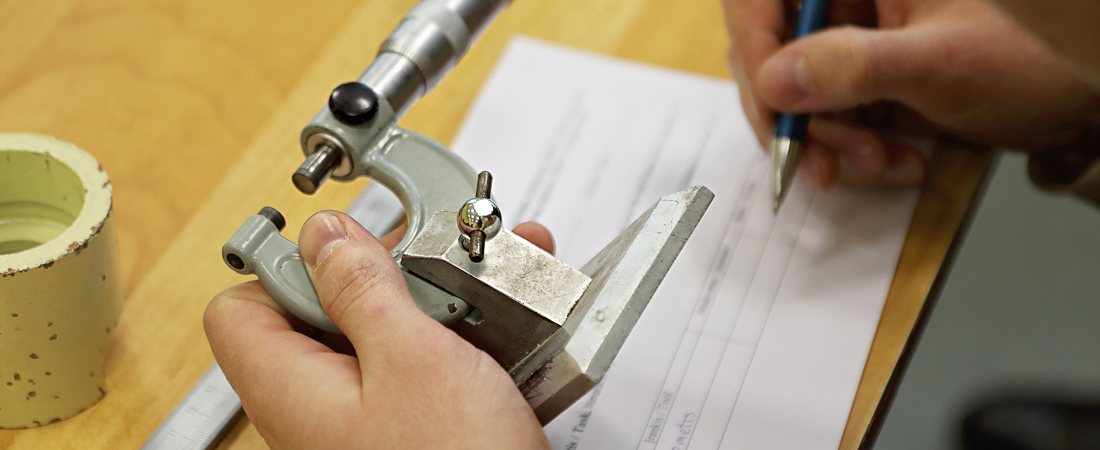ABOUT THE PROGRAMME
Many products, processes and technologies that make up our world rely on mechanical engineering, which combines mathematics, physics and materials science with creative thinking. Materials processing engineers use state-of-the-art technologies, including automated design systems and 3D production equipment, to design and build various machines, parts, tools, control production technologies and ensure quality of manufacturing processes.
As part of this course, students learn the principles of engineering applied to the design, analysis, manufacturing, and maintenance of machines and mechanical production techniques, develop analytical thinking and become competent experts and practitioners in high-tech equipment control and maintenance, able to professionally apply materials processing methods, competently analyse and evaluate technological processes and rapidly react to market change.
Future engineers study physics, mathematics, engineering graphics, computer-aided design, manufacturing technologies, material processing software systems, mechatronics and mechatronic systems, etc. Theoretical knowledge is consolidated and improved in practical training and internships, which are conducted in five stages and last up to 20 weeks in total: introductory training is performed at LIK; measurement, professional activity, manufacturing technology and final internships are performed in partner companies.
The programme has been awarded the Investors' Spotlight Quality Label, which confirms that the programme meets the needs of foreign investors and is a leader in training specialists in this field in Lithuania. There is a particular shortage of professionals in the labour market today, and the programme is designed to cater to this need.
Students have a possibility to study under the Erasmus+ student mobility programme in higher education institutions of the EU, Norway and Turkey, as well as to perform Erasmus+ traineeships in foreign companies. You can find the full list of LIK partner institutions here
The qualification acquired gives the right to work as engineers in metal processing companies, their divisions, to organise models of production and repair process planning, to perform maintenance and repair works of equipment as part of the company's activities, and to create one's own business. Common graduate career paths include CNC engineers-operators, programmers, quality controllers and production managers.
Students are awarded a Professional Bachelor's degree in Engineering upon completion of their studies and successful defense of graduation thesis. Graduates can continue their studies and obtain a master’s degree.
Citizens of Lithuania or other member countries of the European Union (EU) or European Economic Area (EEA) and their family members, non-EU and non-EEA nationals granted a right of permanent residence in Lithuania, stateless persons and Lithuanian nationals residing abroad can apply through the Centralised Admission Information System and can be accepted to the state-funded study places or claim for scholarships in accordance with the procedures established by the applicable legislation.
Applicants who do not meet the criteria can apply to self-funded studies. Tuition fees for the following intake are listed here.
LIK has one intake per year for studies commencing from September 2nd.
Citizens of Lithuania or other member countries of the European Union (EU) or European Economic Area (EEA) and their family members, non-EU and non-EEA nationals granted a right of permanent residence in Lithuania, stateless persons and Lithuanian nationals residing abroad can apply through the Centralised Admission Information System.
Applicants who do not meet the criteria listed above can apply to LIK directly. The steps of the direct application process are explained here.
If you have questions regarding admissions, email us at admission@lik.tech
IMPORTANT LINKS
SPECIALISATIONS WITHIN THE STUDY PROGRAMME
Management of Production Technologies
The aim of the specialisation is to provide the competencies and skills required to organise and manage production technology processes, computerised machinery control systems, to select production equipment and tools according to technical parameters.
Plastics processing technologies and process control
- Plastic Product Molding Technologies
- Technologies for the Manufacture and Repair of Plastic Products
- Quality Management of Production Processes for Plastic Products
- 3D Printing Technologies and Principles
COURSE STRUCTURE
| YEAR I |
| YEAR II |
SEMESTER III |
ECTS |
| Foreign Language 1 (English / German / Russian) | 3 |
| Philosophy / Sociology (elective) | 3 |
| Computer-Aided Design EN | 6 |
| Manufacturing Technologies EN | 3 |
| Materials Processing Software Systems EN | 6 |
| Optional Subject (elective) | 3 |
| Measurement Training EN | 6 |
SEMESTER IV |
ECTS |
| Foreign Language 2 (English / German / Russian) | 3 |
| Technological Analysis of Structural Elements EN | 3 |
| Semester Work 1 EN | 6 |
| Specialisation Subject | 6 |
| Optional Subject (elective) | 3 |
| Professional Internship | 9 |
| YEAR III |
SEMESTER V |
ECTS |
| Product Production Technologies EN | 6 |
| Equipment Design EN | 3 |
| Semester Work 2 EN | 6 |
| Specialisation Subject | 3 |
| Optional Subject (elective) | 3 |
| Manufacturing Technology Internship | 6 |
SEMESTER VI |
ECTS |
| Professional Communication / Business Ethics (elective) | 3 |
| Environment and Human Safety EN | 3 |
| Business Economy and Management EN | 3 |
| Specialisation Subject | 3 |
| Specialisation Subject | 3 |
| Final Internship | 6 |
| Graduation Thesis EN | 9 |




